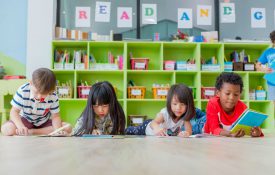-
The huge benefits of working in your second language
I recently spent four months working at the BBC in London, and English always sounded far smarter in my head than when it came out of my mouth. I often forgot words, made grammatical slips, and missed the usual precision of my native Spanish. It felt like trying to eat soup with a fork. As I write this, I have a dictionary open in front of me because I have learned to mistrust my ideas about what some words mean. But there is a silver lining for those who are working in languages other than their native one. Research has recently shown that people who can speak a foreign language are likely to be more analytical.
-
Should You Keep a Secret?
A while back, my sister, Rebecca, called with a request: She wanted me to book a flight to come and see her immediately—and not tell anyone. Rebecca explained that she was having a breast biopsy the next day, was terrified to hear the results, and wanted me there for support. But she didn’t want to worry others in our family. I jumped on a plane but wrestled with a dilemma. Many members of my family are doctors. Rebecca herself is an internist. Our father is an orthopedic surgeon and another sister is a gynecologist. I knew they would have advice for Rebecca—and would want to know if she were sick. But my sister asked me not to share what she told me. And I didn’t.
-
Why Grandmothers May Hold The Key To Human Evolution
A hunter with bow and arrow, in a steamy sub-Saharan savanna, stalks a big, exotic animal. After killing and butchering it, he and his hunt-mates bring it back to their families and celebrate. This enduring scenario is probably what many of us have stuck in our heads about how early humans lived. It's an image with drama and danger. And it happens to coincide with Western ideas about the division of labor and the nuclear family that were prevalent in the 1960s when this so-called "Man the Hunter" theory first emerged. A newer body of research and theory, much of it created by women, has conjured a very different scenario.
-

Beyond the Reading Wars: How the Science of Reading Can Improve Literacy
A scientific report emphasizes the importance of teaching phonics in establishing fundamental reading skills in early childhood.
-
The Overprotected American Child
A few weeks ago I left my 9-year-old daughter home alone for the first time. It did not go as planned. That’s because I had no plan. My daughter was sick. My husband was out of town. And I needed to head to the drugstore—a five-minute walk away—to get some medicine for her. So I made sure my daughter knew where to find our rarely used landline phone, quizzed her on my cellphone number and instructed her not to open the front door for anyone. Then I left. Twenty minutes later I was back home. Both of us were a bit rattled by the experience—her first time completely alone, with no supervising adult!—but we were fine.
-
In the #MeToo Era, Raising Boys to Be Good Guys
Parenting, as I have come to understand it, is an endless series of life hacks. My wife and I have to think creatively to stay ahead of our two sons. I’ve hidden vitamins beneath pools of ketchup, made cough-syrup ice pops, learned the hard way that toothpaste will clean marker off wood furniture while hair spray will get it out of upholstery. But there are no shortcuts for the core mission of parenting: Raising a child to be a good person. The thought of either of my two sons harassing or assaulting another person, or being victims themselves, is enough to keep me up at night. Any parent is likely to share my worry.

